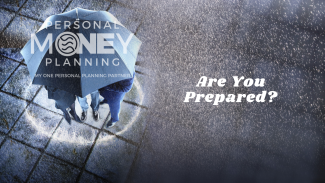
Worst-Case Preparation
By Gary Silverman, CFP®
If the recent past has taught us anything, it’s that we really need to have a plan for the future, and that includes worst-case scenarios. While not a topic most like to dwell on, this area of planning has become many people’s daily reality.
Let’s face it, in 2019 you weren’t thinking: I wonder how I would cope with not being allowed out of my house for two months. Restaurateurs weren’t making plans on having zero seating for several months. The people serving you popcorn at the movies weren’t wondering how their lives would change if no one went to the theater for over a quarter of a year. And the availability of toilet paper wasn’t much of a concern.
While sometimes it may not have been obvious, hospitals, governmental agencies, and even most financial firms had plans for what to do in a pandemic. In some the plans were just to have people cross-trained so that if someone was sick for a while (or died) all critical job functions would be covered. Few put in their plans how to handle their employees if the government ordered their businesses to be closed for a month or two. Fewer still took into consideration not just how it affected their company, but also that of their suppliers and customers.
I’m betting that quite a few organizations who did have a plan didn’t remember they did when the pandemic hit. And those that did may have found that the preparations that were supposed to be in place either never happened or had fallen by the wayside.
Pandemics are only one of many medical worst-case scenarios. And medical worst-cases are just one of the multiple brands of worst-cases we can choose from.
Now let’s get personal. How are you preparing for the next pandemic? What about tornados? We are reminded about them a couple of times a year, but I’m guessing that few of my readers can tell you what plans they have if one struck the community, including where the supplies are or what they would do about a loss of electricity that lasts days. What about alternative shelter options? Reserve food and water supplies? Heating?
Don’t worry, I’m in the same boat as you. Planning and preparation can only go so far. But that’s part of it. Knowing what the end of your plan looks like, including how limited your preparations are, lets you know when you are no longer in the midst of your emergency. Instead, you are face-to-face with a crisis you may not be prepared to handle on your own. What then?
I’ll cover the money planning aspect of emergencies and crises next week. Until then, I’m leaving you with some homework. Think about how secure your current income stream is. What might interrupt it and how long? Think about how controlled your expenses are. What might cause an unexpected one? And now, outline what you will do if those “mights” actually happen.
Are you prepared?
Gary Silverman, CFP® is the founder of Personal Money Planning, LLC, a Wichita Falls retirement planning and investment management firm and author of Real World Investing.

